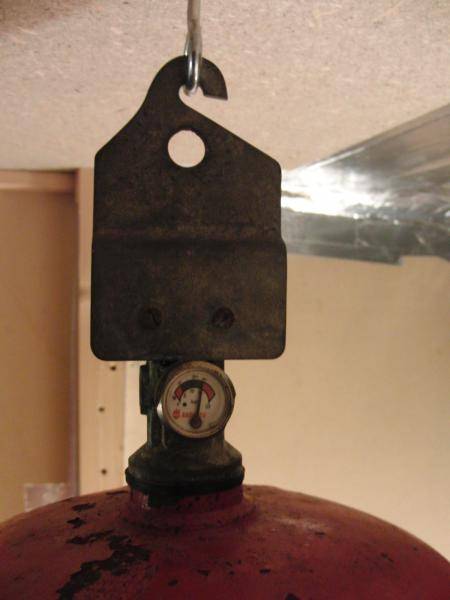B
bongoie
Shit happen's , sometimes it happen's to me sometimes to you .
I have a safe pass for working on building sites , this is a day course to educate construction worker's .
The truth of the matter is you are you'r own safety officer .
So let's talk about safety , all input welcome
Like rule # 1 in growing = don't tell any one and get caught
RULE # 1 Get a smoke alarm , and check it regulary , change the batteries if needed Quality brand batt's are best . Make sure it work's
Use a 120V smoke detector on a light circuit if possible. This allows you to link all alarms in the house for quicker warnings , you should always have battery back up as electrical service is one of the first things to fail during a fire .
RULE # 2 get a powder fire extingisher , powder is safe to use on an electrical fire , they come in a range of sizes .

RULE # 3 have a plan as like i say shit happen's , how will you tackle a fire in this situation ?
The grow and all you'r gear is irrelevent over your and others safety , fire's/smoke KILL where is your nearest safe exit .




Automatic Dry Powder Extinguisher 6kg
http://www.youtube.com/watch?v=STjMZz8gxbA
A automatic dry powder fire extinguisher designed to be fully automatic. The unit is a stored pressure type with a mixture of dry powder and nitrogen, as the fire reaches the temperature specified on the glass bulb it shatters allowing the dry powder to be released under pressure over a wide area.
•Fully refillable
•Complete with roof mounting bracket
•Activation Temp is 68°C
http://www.apexfire.ie/product-detail/automatic-dry-powder-extinguisher-6kg/20
I have a safe pass for working on building sites , this is a day course to educate construction worker's .
The truth of the matter is you are you'r own safety officer .
So let's talk about safety , all input welcome
Like rule # 1 in growing = don't tell any one and get caught
RULE # 1 Get a smoke alarm , and check it regulary , change the batteries if needed Quality brand batt's are best . Make sure it work's
Use a 120V smoke detector on a light circuit if possible. This allows you to link all alarms in the house for quicker warnings , you should always have battery back up as electrical service is one of the first things to fail during a fire .
RULE # 2 get a powder fire extingisher , powder is safe to use on an electrical fire , they come in a range of sizes .
RULE # 3 have a plan as like i say shit happen's , how will you tackle a fire in this situation ?
The grow and all you'r gear is irrelevent over your and others safety , fire's/smoke KILL where is your nearest safe exit .
Automatic Dry Powder Extinguisher 6kg
http://www.youtube.com/watch?v=STjMZz8gxbA
A automatic dry powder fire extinguisher designed to be fully automatic. The unit is a stored pressure type with a mixture of dry powder and nitrogen, as the fire reaches the temperature specified on the glass bulb it shatters allowing the dry powder to be released under pressure over a wide area.
•Fully refillable
•Complete with roof mounting bracket
•Activation Temp is 68°C
http://www.apexfire.ie/product-detail/automatic-dry-powder-extinguisher-6kg/20
Last edited:

